Italy is one of the most beautiful destinations in the world, with winding cobblestone streets, vineyard-dotted hillsides, and vibrant piazzas that pull travelers in with irresistible charm. For many visitors, especially those seeking a more immersive or budget-friendly experience, Airbnb has become the accommodation of choice. And in the right circumstances, it can be a dream—waking up in a sun-drenched apartment overlooking a Tuscan valley or cooking fresh pasta in a Roman kitchen. But like all dreams, there’s a flip side. A poorly chosen Airbnb can turn your Italian holiday into a logistical mess, complete with false advertising, endless check-in issues, and sleepless nights.
Italy, for all its magic, doesn’t always operate by the book when it comes to short-term rentals. While some hosts go above and beyond, others fall far short of expectations—or bend rules until they break. Add in cultural differences, language barriers, and Italy’s often-chaotic infrastructure, and it’s easy to see how things can go off the rails. The good news is that most Airbnb disasters are preventable with the right research and a bit of local knowledge.
This guide is designed to walk you through every major risk and misstep, so you can navigate the world of Italian short-term rentals with confidence. Whether you’re planning to base yourself in a Renaissance-era apartment in Florence or a seaside flat in the Amalfi Coast, these insights will help you sidestep frustration and enjoy the stay you truly deserve.
Understand the Pros and Cons of Airbnb in Italy
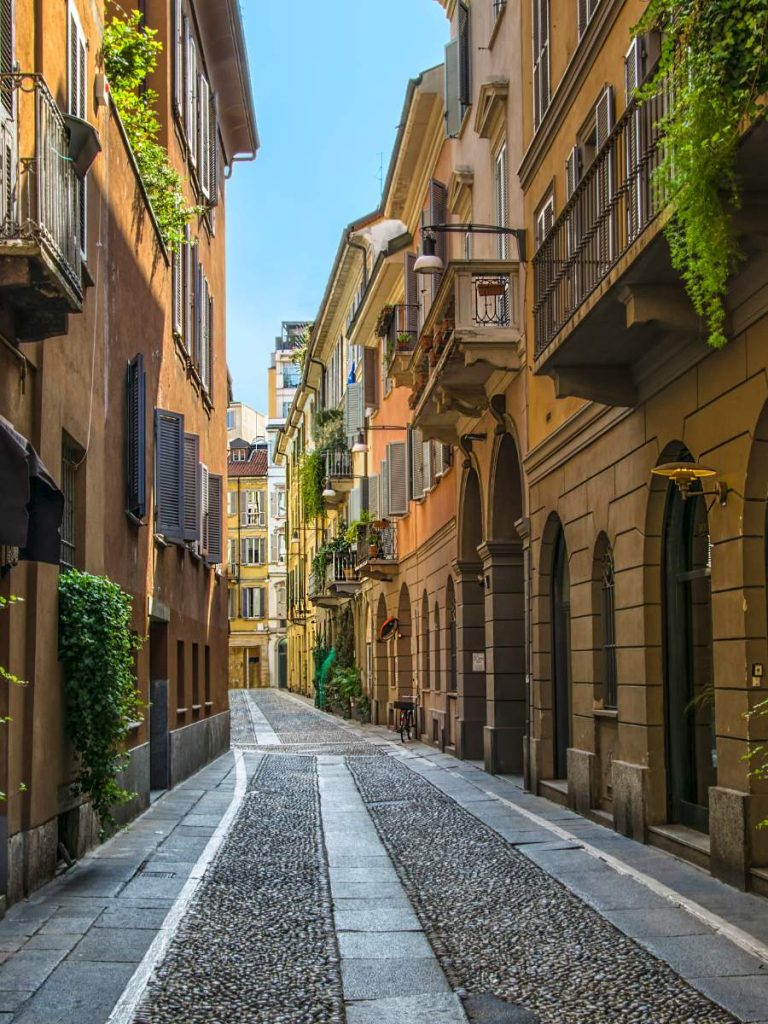
The appeal of staying in an Italian Airbnb is obvious. There’s something incredibly romantic about renting a local apartment, complete with worn tile floors, wooden shutters, and a balcony dripping with flowers. It offers a more authentic, lived-in feel than a hotel, and it often comes with conveniences like a kitchen, washing machine, or more space to spread out. For families, long-term travelers, or anyone eager to feel like a local, Airbnb offers a unique way to experience Italy from the inside out.
But the freedom of Airbnb also comes with strings. Unlike hotels, there’s no front desk to save you if things go wrong. Hosts may cancel last minute, delay check-ins, or list misleading descriptions. Cleanliness and maintenance standards vary wildly. Some properties may be exactly as promised, while others turn out to be cluttered, noisy, or poorly equipped. And while Airbnb’s platform tries to regulate quality through reviews, enforcement in Italy is still inconsistent.
In Italy, Airbnb can be a blessing or a burden depending on where you stay, what time of year you travel, and how prepared you are. It works best in places with a well-developed tourist infrastructure, like Florence, Rome, or Milan, where hosts tend to be experienced and responsive. In smaller towns or less regulated regions, however, the quality can dip. Ultimately, Airbnb works well in Italy if you treat it like renting someone’s personal space, not like booking a hotel room.
Know the Legal Landscape
Italy’s relationship with Airbnb has evolved over the years, and not without tension. Major cities like Rome and Florence have introduced stricter laws aimed at curbing the impact of short-term rentals on housing markets. Hosts are now required to register with local authorities and provide guest information to the police, a process known as the “Schedina di notificazione.” This is essentially a digital record of your stay, much like checking in at a hotel. It’s meant for security and tax purposes, but not every host follows through.
This lack of regulation can put guests in an awkward position. If your host is operating illegally or under the radar, you could be left with no support if something goes wrong. In extreme cases, authorities have shut down unregistered Airbnbs mid-stay, leaving travelers scrambling to find new lodging. More commonly, unlicensed hosts may cut corners on safety standards, cleaning, or communication. When choosing a listing, it’s crucial to look for verified hosts or Superhosts with reviews that mention a smooth check-in and official procedures.
Always make sure your host collects your passport information and registers your stay with the authorities. If they don’t, it’s not just a red flag—it could be a violation of Italian law. While the police won’t be knocking on your door, staying in an unregistered apartment does leave you vulnerable in case of disputes, emergencies, or accidents. A legally compliant host is your first line of defense against a vacation nightmare.
Always Read the Reviews (The Right Way)
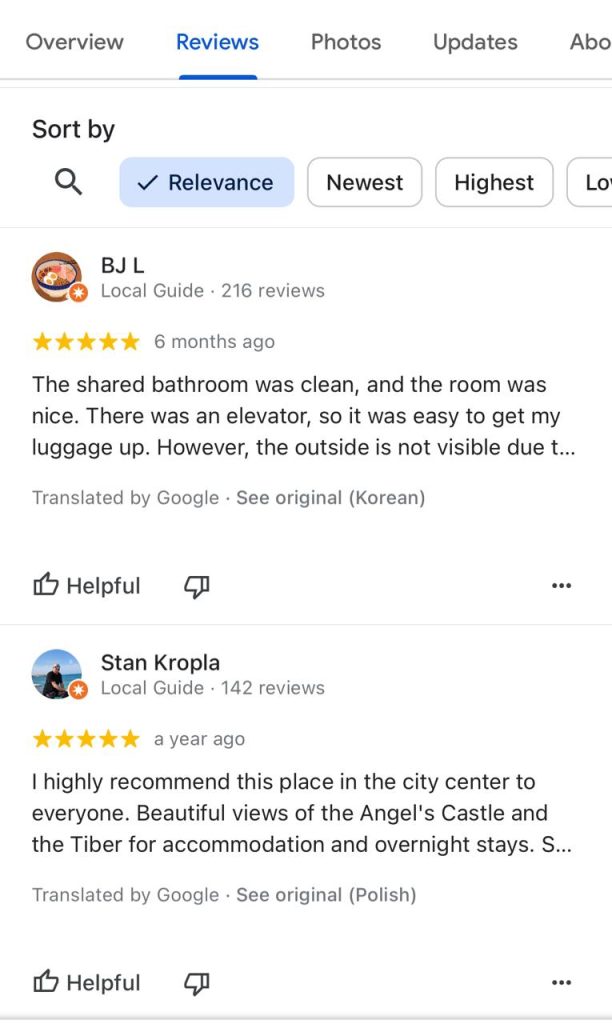
One of the most powerful tools in your Airbnb toolkit is the review section, but it takes some finesse to interpret it correctly. Glowing reviews can be misleading, especially if they come from guests who stayed during a different season or had different expectations. It’s important to read reviews carefully and critically. Don’t just look at star ratings—read what people actually say about cleanliness, noise, accuracy, and communication. If several guests mention the same issue, even in passing, take it seriously.
Look at the dates of the reviews and prioritize recent feedback. A place that got five stars two years ago might have gone downhill under new management. Similarly, ignore vague comments like “great stay!” and focus on specifics. Did guests talk about a broken shower, thin walls, or unreliable Wi-Fi? Were they happy with the host’s response time? Often, negative experiences are hinted at rather than stated outright, especially if guests are trying to be polite. Learn to read between the lines.
Be cautious if a listing has very few reviews or an oddly high number of one-night stays. This could indicate a new or frequently rebranded property trying to bury old feedback. A consistent history of positive, detailed reviews over time is the best indicator of a reliable listing. And remember, when in doubt, there are always other options. Italy is full of rentals, and it’s worth passing on a sketchy listing for peace of mind.
Analyze the Photos Like a Pro
Photos are the window into your future stay, and analyzing them properly can save you from surprises. Hosts often use wide-angle lenses or clever lighting to make spaces look bigger and brighter than they are. That sunny Roman terrace might be a shared rooftop. That massive-looking living room may feel more like a hallway in person. Look closely for details: windows, bed size, storage, and kitchen appliances. Zoom in if necessary—what looks clean from afar might reveal clutter or damage up close.
Be wary of listings that include only a few images or skip essential rooms. If you don’t see a photo of the bathroom or kitchen, assume there’s a reason. Likewise, avoid places where every photo focuses on close-up decor instead of layout. A beautiful bookshelf tells you nothing about the space you’ll be living in. Ideally, the listing should include a clear photo of each room, including the entrance and any outdoor spaces.
A good tip is to try to mentally “walk through” the space. Can you picture how the bedroom connects to the bathroom? Is there enough seating in the living room for your group? Are there windows for ventilation? Use photos to verify layout, natural light, and overall comfort—not just aesthetic charm. It may not be foolproof, but it gives you a better sense of what to expect.
Message the Host Before Booking
Taking a few minutes to message the host before you book can reveal a lot about what your stay will be like. Even if the listing looks perfect, a brief exchange helps test responsiveness, professionalism, and the host’s willingness to assist. Ask questions that matter to you: how close is the nearest supermarket or metro station? Is the Wi-Fi suitable for video calls? What’s the best way to get into the building? The tone and speed of the reply can tell you more than the listing ever will.
A delayed, vague, or overly formal response may indicate that the host is using a property manager or doesn’t engage personally with guests. While not necessarily a dealbreaker, it may suggest a lack of flexibility or a hands-off approach. On the other hand, a warm, detailed reply shows that the host is involved and cares about your comfort. It’s always better to work with someone who’s communicative before issues arise—because if something goes wrong during your stay, you’ll want that same helpful attitude.
In some cases, messaging a host can clarify confusing policies or help avoid surprises. For example, a listing might say there’s air conditioning but only mention in fine print that it’s available for an extra fee. Or you might learn that check-in isn’t possible after 8:00 PM unless you pay a surcharge. These details may not be obvious on the listing page but can come up naturally in a pre-booking conversation. Don’t be shy—it’s your vacation, and you have every right to ask.
Understand Location Beyond the Listing Title
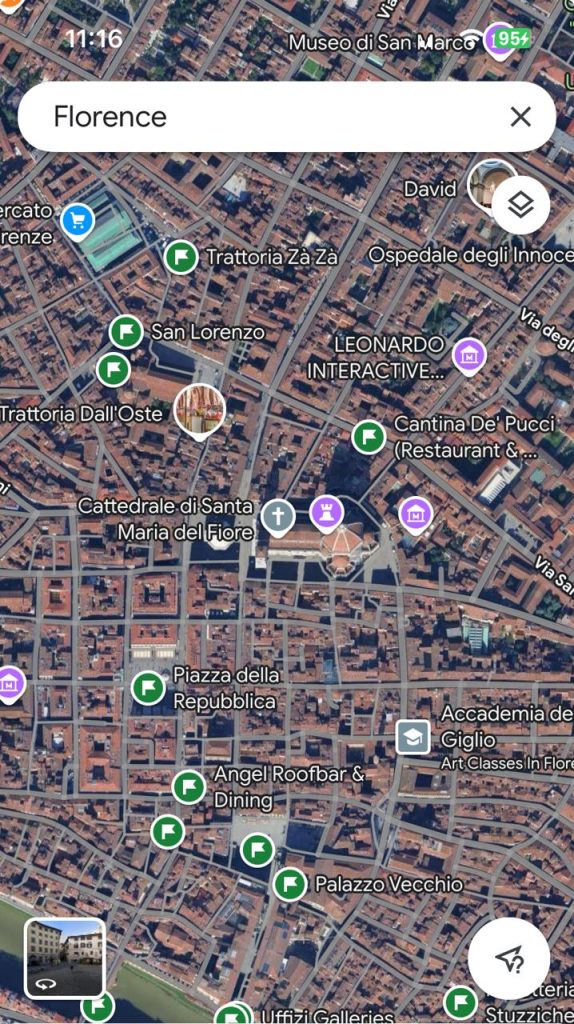
“Close to the center” is one of the most abused phrases in Italian Airbnb listings. While it may technically be true, that could still mean a long walk from any real landmarks—or worse, a location that’s poorly connected to public transport. Use Google Maps to check the distance between the property and places you plan to visit. Look for proximity to metro lines, tram stops, or bus routes. In historic cities like Rome or Florence, a few kilometers can make the difference between strolling to the sights or navigating an hour of traffic.
Beyond just distance, consider the character of the neighborhood. Some areas may be convenient but loud, especially if they’re near nightlife zones or busy intersections. Others may be quiet but isolated, making evening walks feel uncomfortable or unsafe. Use Street View to scan the area: do the sidewalks look clean and welcoming? Are there shops and cafés nearby? Or is it a row of shuttered buildings and graffiti-covered walls?
Reading reviews can also help fill in the gaps. Guests often mention if the area felt sketchy or far from attractions. Remember that Italian cities are layered with contrast—a beautiful church might sit across from a noisy bar. Knowing where your apartment truly sits in the urban fabric can help you avoid sleepless nights or long commutes that eat into your sightseeing time. In a country where each neighborhood tells a different story, choosing the right one makes all the difference.
Watch Out for Hidden Fees and Policies
Italian Airbnb listings sometimes come with extra costs that aren’t obvious at first glance. One common culprit is the cleaning fee, which can add €30 or more to a short stay. While this isn’t unusual, some hosts use it to artificially lower the nightly rate and appear cheaper in searches. Others may tack on separate charges for things like late check-ins, luggage storage, or air conditioning—so always read the fine print.
City taxes are another expense you’ll encounter. Known as the tassa di soggiorno, this tax is charged per person, per night, and varies by city and type of accommodation. In most cases, it’s not included in your Airbnb bill and must be paid in cash upon arrival. While small, it’s something to be aware of, especially for families or longer stays. A lack of clarity about these taxes can lead to frustration at check-in, especially if the host suddenly springs it on you.
Cancellation policies can also be tricky. Some hosts offer flexible terms, but others have strict or non-refundable policies, even for long stays. Read them carefully before you book, and consider travel insurance if you’re booking far in advance. Life happens—train strikes, family emergencies, or even illness—and it’s good to know your options in case you need to change plans. The best way to avoid hidden headaches is to treat every booking like a contract: check every clause before you sign.
Check for Seasonal Considerations
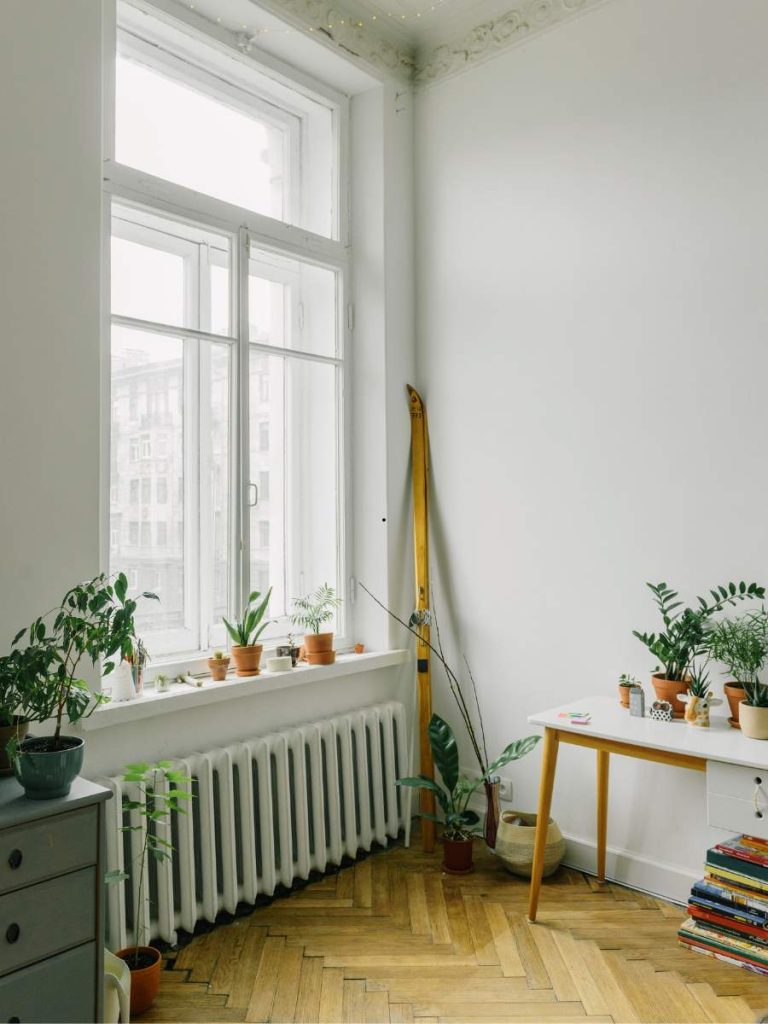
Italy is a country of extremes—not just in its landscapes and architecture but also in its seasons. In summer, cities like Florence and Rome can be sweltering, often reaching 95°F (35°C) or more. Yet many older apartments don’t have air conditioning, and those that do may only cool one room or operate under strict usage limits. Before booking, confirm whether there’s AC, what kind it is (portable unit or central), and whether it covers the entire space.
Winter, on the other hand, can bring its own surprises. While southern Italy stays relatively mild, northern and central regions can dip into chilly temperatures, especially in December and January. Heating systems in old buildings can be underpowered or restricted by municipal regulations. In some cases, hosts limit how long the heat runs to save on energy bills. Guests used to toasty American homes may find themselves layering up at night unless they plan accordingly.
If you’re traveling during a peak holiday like Ferragosto in August or Christmas in December, availability tightens and prices rise. Hosts may be less responsive, local businesses could be closed, and services like airport transfers may become harder to arrange. Booking well in advance and asking hosts about local seasonal quirks can help you prepare. Italy remains a wonderful destination year-round, but it’s wise to consider how climate and culture may affect your comfort.
Avoid “Ghost Hosts” and Third-Party Managers
While the idea of staying with a local host sounds charming, many Italian Airbnb listings are actually managed by agencies. These “ghost hosts” own dozens of properties and use automated responses, outsourced cleaners, and standardized policies. While efficient, this often results in a more impersonal experience. You might struggle to get personalized recommendations, or face delays when problems arise—especially if the property manager is juggling multiple listings.
The biggest issue with ghost hosts is communication. They might not be available to meet you in person, or they may send you an assistant with limited information about the property. If something breaks or isn’t stocked properly, resolving it can take longer than with a dedicated host who lives nearby and takes pride in the space. If you’re hoping for insider tips, warm welcomes, or a truly local feel, these types of hosts often fall short.
To spot a ghost host, look at the profile carefully. Do they have dozens of listings? Are the reviews overly generic? Does the message tone sound automated or overly polished? If so, consider whether you’re comfortable with a more corporate rental. For some travelers, this setup works fine. But if you’re after a personal touch, authenticity, or flexibility, it’s usually better to book with a true local who treats the space as a labor of love rather than a business pipeline.
Verify Check-In and Check-Out Logistics

Check-in and check-out can often be the most stressful moments of an Airbnb stay, especially in Italy where time is fluid and communication gaps can crop up. Many listings still rely on in-person key exchanges, and if your host is late, unavailable, or vague about instructions, it can throw off your entire schedule. Imagine arriving jet-lagged in Rome at 9 p.m. only to find yourself locked out of a building with no way to contact anyone. It happens more than you’d think.
Before booking, clarify exactly how check-in will work. Will someone meet you, or is there a lockbox? What happens if your train is delayed or your flight gets in after hours? Ask these questions upfront and look for listings that offer flexibility or self-check-in. Some hosts use smart locks or keypads, which can make life easier. But even with these, make sure you have clear instructions and that someone is reachable in case technology fails.
Also, confirm the check-out process before arrival. Will someone come inspect the property? Are you expected to strip the bed or take out the trash? Hosts sometimes have strict cleaning expectations, and misunderstanding these can lead to disputes or bad reviews. Italy’s casual hospitality doesn’t always extend to short-term rentals, where professional hosts expect hotel-like turnover. Clear logistics help ensure your departure is just as smooth as your arrival.
Confirm Basic Amenities and Safety Standards
Not all Airbnbs are created equal, and what some hosts call “essentials” might be lacking by your standards. Don’t assume that a property will include things like dish soap, toilet paper, or towels—check the listing and ask if it’s not clear. It’s also smart to ask about Wi-Fi speed if you plan on working remotely or streaming content. Some listings promise high-speed internet only for guests to arrive and find spotty coverage or bandwidth that chokes with two users.
Old buildings in Italy, especially in city centers, can present challenges that first-time visitors don’t anticipate. Elevators are often tiny or non-existent, meaning you could be hauling luggage up five flights of stairs. Electrical outlets may be few and oddly placed. Plumbing can be temperamental, and showers might offer a trickle of water if multiple guests are washing up at once. Ask practical questions about what to expect—because once you arrive, solving these issues becomes much harder.
Safety features are another area where assumptions can backfire. Does the property have a fire extinguisher? A working smoke detector? Emergency exit access? These aren’t always guaranteed, especially in older or unlicensed apartments. Airbnb encourages hosts to provide these, but enforcement is lax. If you’re traveling with kids or elderly guests, or you simply want peace of mind, it’s worth asking. Vacation should feel relaxing, not risky.
Prepare for Cultural Differences in Hospitality
In Italy, service culture operates differently than in the U.S. or Northern Europe. Airbnb hosts may not check in on you during your stay, and that’s not necessarily a bad sign. Italian hospitality tends to be warm but hands-off—especially in regions where locals expect guests to be independent. This can be jarring for visitors used to daily contact, but it’s rooted in respect for privacy. Unless there’s an issue, many hosts assume that no news is good news.
Italians may also have different standards of communication. A delayed reply doesn’t always mean disinterest—it might just reflect a more relaxed sense of urgency. Likewise, small things like a missing towel or an overripe fruit bowl may not be considered a big deal locally. Rather than expecting perfection, it helps to arrive with a flexible mindset. When in Rome—or Florence or Palermo—try to roll with the rhythms of the place.
Language can also play a role in misunderstandings. While many hosts speak decent English, complex requests or problems may still cause confusion. Using polite, simple language and showing patience often leads to better outcomes. Italians are famously proud of their homes and traditions, and if you approach them with kindness and curiosity, they’ll usually bend over backward to help. Cultural grace often makes the difference between a bad stay and a memorable one.
Know What to Do If Things Go Wrong
Even the best-prepared travelers can run into problems. Maybe the apartment wasn’t cleaned, or the AC is broken, or the host won’t answer your calls. In these moments, your best ally is documentation. Take photos of anything that doesn’t match the listing—dirty sheets, broken furniture, water leaks—and message your host immediately through the Airbnb app. This creates a record of your concerns and shows that you’re making a good-faith effort to resolve them.
If your host is unresponsive or unhelpful, contact Airbnb support right away. The platform has a 24-hour resolution window for major issues, but you’ll need evidence to back up your claim. Refunds aren’t automatic, and Airbnb tends to favor the party with clearer documentation. Be calm, firm, and factual in your messages. Avoid exaggeration or emotional language—it’s better to focus on what was promised versus what was delivered.
In the worst-case scenario, Airbnb can help relocate you or offer partial compensation. This is more likely if you act quickly and use the app rather than taking the issue offline. If you booked with a credit card, you may also have consumer protections through your issuer. But ideally, you won’t need any of this. The real goal is to avoid problems through smart booking and clear communication—but if things do go wrong, it’s comforting to know you’re not powerless.
Alternatives to Airbnb Worth Considering
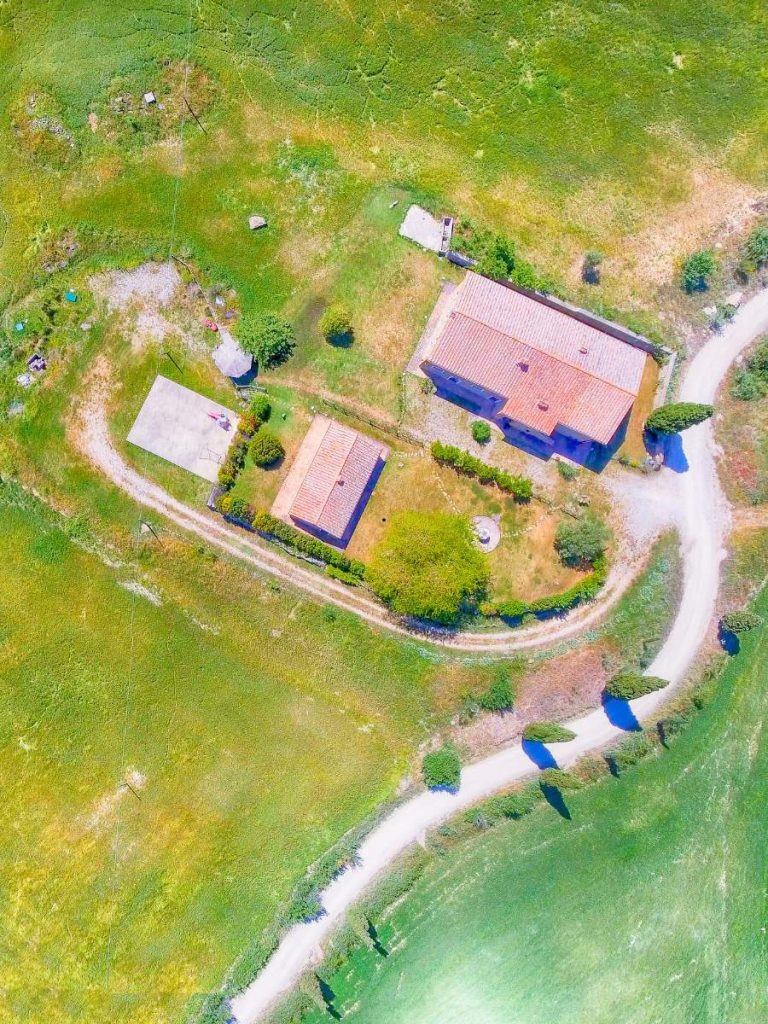
While Airbnb dominates the vacation rental market, it’s not the only option in Italy. Agriturismos—farm stays often located in rural or semi-rural areas—offer a unique, immersive experience with the reliability of traditional hospitality. Many include breakfast, pools, and on-site restaurants featuring homegrown ingredients. You’ll interact directly with local families and experience Italy’s countryside at a slower, more personal pace.
For travelers seeking urban comfort, small boutique hotels and guesthouses can often match Airbnb prices without the risks. Many are family-run and offer far more charm and warmth than big chains. Booking platforms like Booking.com or Italy-specific portals often feature listings with free cancellation and verified reviews. These options are especially good for shorter stays or when you want predictable service.
Even serviced apartments and extended-stay hotels are gaining popularity, especially in cities like Milan, Bologna, or Rome. These provide apartment-style lodging with the added benefit of on-site staff and support. While Airbnb still has its place, branching out to other platforms gives you more control over your experience and may result in a smoother, more satisfying stay, particularly if you value consistency and support.

